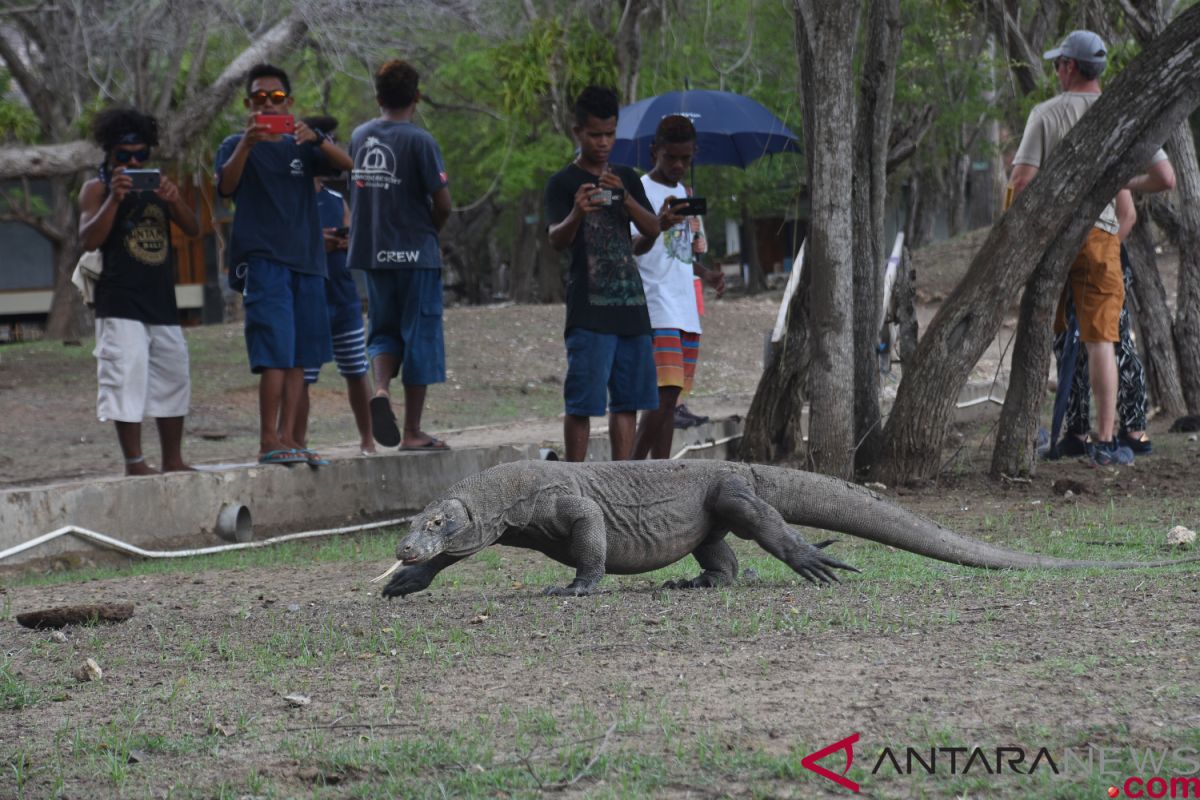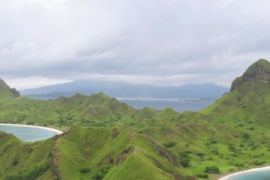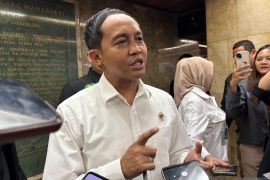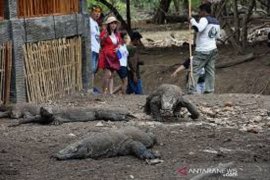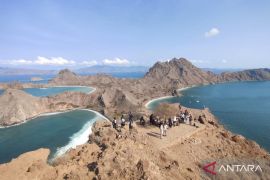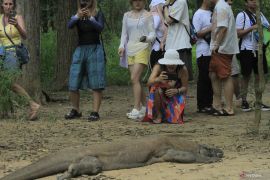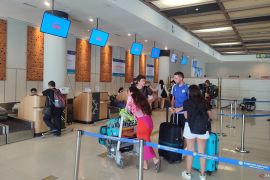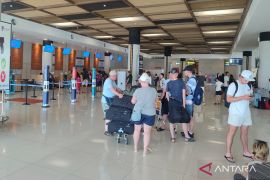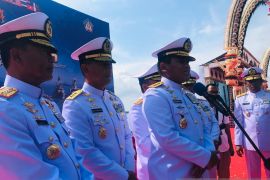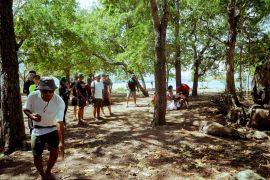Around one month after the governor was installed, Laiskodat announced that his administration would take over the management of the Komodo National Park from the Environmental Affairs and Forestry (LHK) Ministry.
"I will never hesitate to confront anyone. I will see the president. We do not want to accept someone from the central (government) here, because we are from the central (government) here. We are the one who take control," Laiskodat, politician of the National Democrat (Nasdem) Party, was quoted as saying by Pos-Kupang.Com on Oct 12, 2018.
His second plan is to raise the entry ticket fare to the Park to US$500 per foreign tourist, for conservation purposes and revenue increase for the local government.
"$500 is a donation for the development of the world ecosystem," the NTT governor stated recently.
The entry ticket fare to the Komodo National Park is now Rp150 thousand (less than $10) for a foreign tourist and Rp5 thousand for a domestic tourist.
His third plan is to close Komodo Island for a year for conservation of its flora and fauna.
Laiskodat revealed that LHK Minister Siti Nurbaya Bakar had agreed to his plan to close Komodo Island for a year.
"Minister of LHK agrees. She noted that as long as it is good, there is no problem. We are now processing the technical matters," the governor stated in Kupang, NTT, on Jan 22.
Laiskodat remarked that the closure of Komodo Island, located in West Manggarai District, Flores Island, NTT, will be materialized when Bakar agrees with his request for cooperation to manage the Komodo National Park, which has, so far, been directly under the management and supervision of the LHK Ministry.
Laiskodat explained that his administration plans to rearrange the island, which is home to the Komodo Dragon (varanus komodoensis) to allow endemic flowers to grow and deer, buffaloes, goats, and other preys of the Komodo to breed in the wilderness on the island.
He also expressed keenness to plan genetic engineering to increase the population of Komodo dragons on the island.
The NTT administration has allocated Rp100 billion in the 2019 regional state budget for restoring the habitat of the Komodo Dragon and making arrangements for the park.
Tourists will only be allowed to tour around the island by boat, but they will not be allowed to land on the island, he clarified.
"I am serious. Komodo Island must be re-designed. Tourists like wilderness of Komodo. They do not come to see lazy Komodo dragons," he stated.
The closure will only be applicable for Komodo Island. Tourists can still visit Rinca Island, Padar Island, and others, he noted.
Djati Witjaksono, spokesman of the LHK Ministry in a statement on Jan 24, noted that a closure of a national park should be based on scientific consideration or particular conditions such as natural disaster such as a volcano eruption or a disease outbreak.
"A closure of a national park is the authority of the Director General for Conservation of Natural Resources and Ecosystem of the LHK Ministry," he added.
Meanwhile, Vice President M. Jusuf Kalla, in Jakarta, expressed his objection to the planned closure of Komodo Island and called for a detailed study of the plan.
Kalla said that he agreed to the plan to raise the ticket fare to enter Komodo National Park, as the current fare was too low.
Speaking in connection with the hike in ticket fare, Kalla called to draw reference from the Angkor Wat National Park in Cambodia, where each foreign tourist is charged $50.
Kalla revealed that as a conservation area, a national park must come under the authority of the LHK Ministry.
Sharing Kalla`s view, Safri Burhanuddin, deputy in charge of natural resources of the Coordinating Minister for Maritime Affairs, has called for a comprehensive study involving the LHK Ministry, Tourism Ministry, and the NTT provincial administration, among others, prior to imposing the closure.
A closure of the island would have a significant impact on the tourism industry, regionally and nationally, he pointed out.
Therefore, the central government will organize a meeting to discuss the plan, he stated.
Coordinating Minister for Maritime Affairs Luhut Pandjaitan had earlier suggested that for the sake of nature conservation on the island, the number of tourists visiting the island should be limited, but the island must not be closed.
The national park comprising three larger islands of Komodo, Padar, and Rinca, as well as 26 smaller ones, was founded in 1980 to protect the Komodo dragon, the world`s only surviving giant lizard.
In 1977, Komodo National Park was named a biosphere reserve by UNESCO (United Nations Educational, Scientific and Cultural Organization) and in 1991, it was declared a UNESCO World Heritage Site. In 2012, it was listed as New7Wonders of Nature sites.
Tourism industry, with the Komodo National Park and Labuan Bajo as its major tourist destinations, is the backbone of the NTT income.
The Komodo National Park recorded revenue amounting to Rp32 billion from tourist visits to the park during 2018, an increase from Rp29 billion in the previous year.
A total of 176,830 tourists had visited the Komodo National Park last year, a surge from 119,599 visitors in 2017.
Of last year`s total tourists, 121,409 were foreigners and 55,421 Indonesians.
The population of Komodo dragons in the Komodo National Park had reached 3,012 heads in 2017. The giant lizards are found on the isles of Padar, Gili Motang, Nusa Kode, Komodo, and Rinca.
According to the IUCN Red List of Threatened Species, the Komodo dragon is listed on CITES Appendix I, indicating that the animal is vulnerable to extinction.
(F001/INE)
Reporter: Fardah Assegaf
Editor: Fardah Assegaf
Copyright © ANTARA 2019
